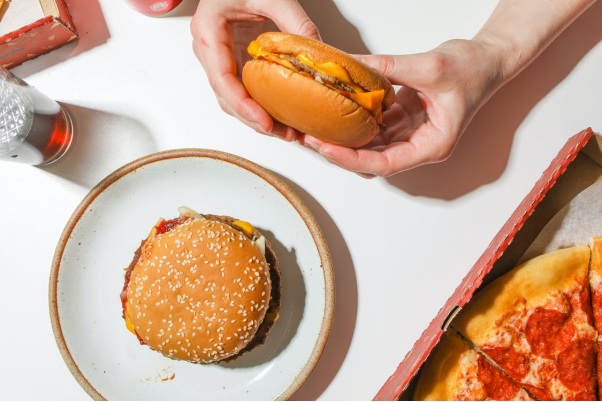Emotional eating is characterized by eating not to satiate hunger but to distract from or soothe negative feelings. If you eat for the sole purpose of suppressing negativity several times a week, you may develop an unhealthy relationship with food, never mind the ensuing weight gain.
Before getting into recovery techniques, let’s discuss why people ‘eat’ their feelings.
Why Do People Engage in Emotional Eating?
Food fills an empty stomach. Negative emotions may leave behind a feeling of emptiness that our body might try to fill through food. That’s the rough idea behind the phenomenon.
Now, here’s why and when you may feel this emptiness.
- Times of voluntary self-isolation.
- Physical inactivity
- Confusing cravings for specific things for real hunger.
- Internalizing negativity
- Stressful episodes, leading to an increase in cortisol and subsequent cravings.
With common reasons for emotional eating out of the way, let’s explore some ways to cope with emotional hunger.
How to Stop Eating for Emotional Reasons
Eating for reasons other than hunger can lead to physical and mental health issues in the long run. Here’s how you can stop yourself from emotional eating.
1. Find a Different Coping Mechanism
Distracting yourself from negative feelings through food would only make them fester. Find an alternative coping mechanism, one through which you can either replace the negativity with positivity or face it head-on.
The latter can be achieved by writing, making a video, or talking to someone about it. You could also devote more time to reading a book or decluttering your brain for a few minutes of meditation every day.
2. Count Calories and Exercise
There’s no shortage of calorie counters on our mobile devices. Download the best you can find to record your daily intake. While you’re at it, download a step counter and set a daily target for your physical activity.
You can also keep a food diary going on the side to document how you felt during each meal or snack. That way, you’ll have something to show a therapist when you decide to seek help with weight loss.
3. Seek Help
By help, we also mean everyone you know outside the mental health spheres, such as your family, friends, office colleagues, and support groups. Even one phone call or face-to-face conversation can help a great deal. So can a hypnosis session.
Whether or not you want to learn how to express emotions, find ways to get rid of the hunger to which it leads, or both; hypnosis can be a way to unlock all those mysteries for you and keep them that way for a long time to come.
All you have to do is reach out to Rekha, a certified hypnotist and rehabilitation counselor with legions of experience in providing support for weight loss, addiction, smoking cessation, recovery codependency, and more through hypnosis.
Unpack emotional baggage and lose weight by reaching out to Rekha in Rochester, NY.



Be First to Comment